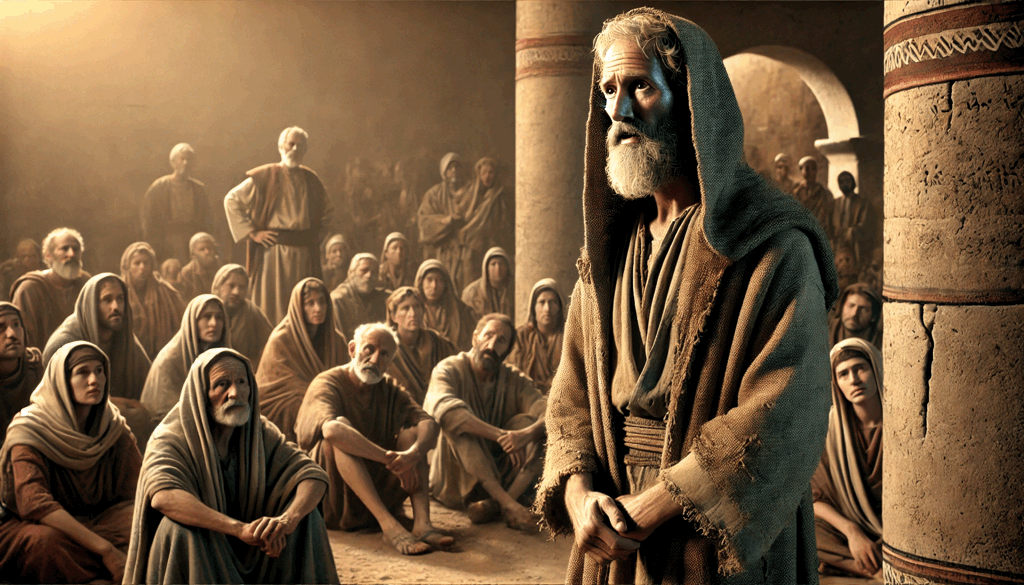My Grace is Sufficient: Lessons from 2 Corinthians 12
In 2 Corinthians 12, Paul delivers one of the most profound messages of humility, faith, and perseverance in the face of hardship. His reflection on personal weakness and divine strength offers timeless insights for navigating life’s challenges. This chapter continues to inspire and guide believers, reminding us that God’s grace is always sufficient, no matter our circumstances.
The Context of 2 Corinthians 12: Paul’s Defense
Paul, addressing the church in Corinth, finds himself defending his apostleship against critics, often referred to as “super-apostles.” These individuals boasted of their credentials, undermining Paul’s ministry. Paul, in turn, reluctantly highlights his experiences, not to elevate himself but to redirect the Corinthians to the sufficiency of God.
Paul recounts visions and revelations from the Lord, including a transformative moment where he was “caught up to the third heaven.” This intimate encounter with God, however, did not lead to pride but was tempered by what Paul describes as a “thorn in the flesh.”
The Thorn in the Flesh: A Mystery of Purpose
What exactly was Paul’s thorn in the flesh? Scholars and commentators have long debated this question. Some suggest it was a physical ailment, perhaps an issue with his eyesight. Others view it as a spiritual struggle or recurring temptation. Regardless of its nature, Paul’s thorn symbolizes the burdens we all carry—challenges that humble us and remind us of our dependence on God.
Paul pleads with God three times to remove this thorn, yet the answer is clear: “My grace is sufficient for you, for my power is made perfect in weakness.” This response encapsulates a profound theological truth: God’s strength is magnified in human frailty. Instead of eliminating the struggle, God provides the grace to endure it.
Understanding Grace: More Than Mercy
Paul’s experience highlights the distinction between grace and mercy. While mercy involves withholding punishment we deserve, grace is the unmerited favor and empowerment God provides to sustain us. For Paul, grace became the bedrock of his ministry, enabling him to persevere despite physical, emotional, and spiritual trials.
In modern life, grace serves as a reminder that we are not defined by our weaknesses. Instead, these weaknesses can become conduits for God’s power. Like Paul, we may find ourselves pleading for relief from our own thorns, only to discover that the sustaining grace of God is more transformative than the removal of the struggle.
Power in Weakness: Redefining Strength
One of the most striking aspects of Paul’s message is his embrace of weakness. He writes, “For when I am weak, then I am strong.” This paradox challenges our cultural obsession with self-sufficiency and strength. Paul reframes weakness as an opportunity for God’s power to shine through.
This lesson is particularly relevant in a world that often equates success with independence and invulnerability. Paul’s story invites us to find freedom in acknowledging our limitations, trusting that God’s power is sufficient to fill the gaps.
Lessons for Today: Humility, Trust, and Purpose
Paul’s testimony offers several takeaways for modern believers:
- Embrace Humility: Like Paul, we are called to recognize that our accomplishments are not our own but are made possible by God’s grace. This humility allows us to lead with authenticity rather than pride.
- Trust in God’s Plan: Paul’s thorn was not removed, yet it served a greater purpose by keeping him humble and reliant on God. Similarly, our struggles may serve as refining tools, aligning us more closely with God’s will.
- Find Strength in Weakness: By leaning on God, we can transform our vulnerabilities into testimonies of His power. This perspective empowers us to face challenges with faith and resilience.
- Prioritize the Message Over the Messenger: Paul’s ultimate concern was the spiritual well-being of the Corinthians, not his reputation. His example reminds us to focus on spreading the gospel rather than seeking personal validation.
A Reflection of Care: Paul’s Pastoral Heart
Beyond his theological insights, 2 Corinthians 12 reveals Paul’s deep love and concern for the church. He hopes to find the Corinthians thriving in faith but fears he might instead encounter division and sin. Paul’s pastoral heart underscores the importance of discipleship and accountability in the Christian community.
As modern believers, we are reminded that true love involves caring enough to speak truth, even when it’s uncomfortable. Whether addressing a wayward friend or nurturing a struggling community, our actions should always aim to uplift and restore.
Conclusion: Grace That Sustains
2 Corinthians 12 is a powerful reminder of the sufficiency of God’s grace. It encourages us to view our challenges not as obstacles but as opportunities to experience divine strength. Like Paul, we are called to boast in our weaknesses, trusting that God’s power is made perfect in the areas where we fall short.
As you reflect on this passage, consider how God’s grace is sustaining you in your current season. What thorns in your life might be teaching you to rely more fully on Him? In the words of Paul, let us remember: “My grace is sufficient for you, for my power is made perfect in weakness.” May this truth guide and inspire us as we navigate the complexities of life, knowing that God’s grace is always enough.

